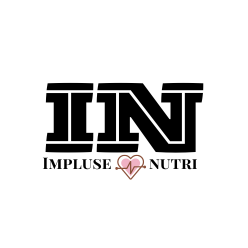The best source of protein can vary depending on your dietary preferences, restrictions, and nutritional goals. Here are some excellent sources of protein from both animal and plant-based options:
**Animal Sources:**
1. **Lean Meats:** Lean cuts of poultry (chicken and turkey), beef, pork, and lamb are rich in protein. Opt for lean cuts to reduce saturated fat intake.
2. **Fish:** Fish is an excellent source of protein and heart-healthy omega-3 fatty acids. Salmon, tuna, trout, and mackerel are particularly good choices.
3. **Eggs:** Eggs are a versatile source of high-quality protein and contain all essential amino acids.
4. **Dairy Products:** Dairy foods like Greek yogurt, cottage cheese, and milk are protein-rich and provide essential nutrients like calcium.
5. **Cheese:** Some cheeses, such as cottage cheese, mozzarella, and Swiss, are good sources of protein, but they can also be high in saturated fat and sodium, so consume them in moderation.
**Plant-Based Sources:**
1. **Legumes:** Beans (e.g., black beans, chickpeas, kidney beans), lentils, and peas are excellent sources of plant-based protein, fiber, and various vitamins and minerals.
2. **Tofu and Tempeh:** These soy-based products are versatile and rich in protein. They are often used as meat substitutes.
3. **Seitan:** Also known as wheat meat or wheat gluten, seitan is a high-protein meat substitute made from gluten. It’s popular in vegan and vegetarian diets.
4. **Nuts and Seeds:** Almonds, peanuts, sunflower seeds, and chia seeds are examples of protein-rich nuts and seeds. They also provide healthy fats and fiber.
5. **Quinoa:** Quinoa is a complete protein source, containing all essential amino acids. It’s a great addition to vegetarian and vegan diets.
6. **Plant-Based Protein Powders:** Options like pea protein, brown rice protein, and hemp protein powders can be added to smoothies and recipes to increase protein intake.
7. **Vegetables:** Some vegetables, like broccoli, spinach, and Brussels sprouts, contain a significant amount of protein per serving, though it’s not as concentrated as in other sources.
8. **Whole Grains:** Whole grains like oats, bulgur, and farro contain more protein than refined grains, making them a healthier choice.
9. **Soy Products:** Soy-based products like edamame, soy milk, and soybeans are protein-rich and can be used in various dishes.
When choosing your protein sources, it’s important to consider your overall dietary needs and preferences. If you’re following a specific diet, such as vegetarian, vegan, or gluten-free, you’ll need to focus on sources that align with those restrictions. Additionally, variety is key to obtaining a wide range of nutrients, so try to incorporate a mix of animal and plant-based protein sources into your diet.







